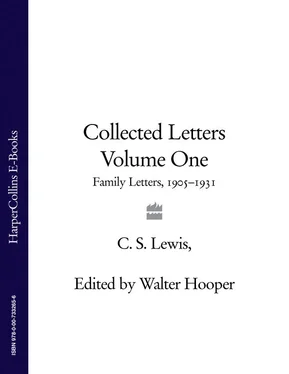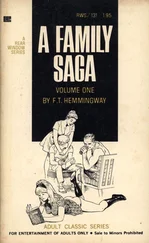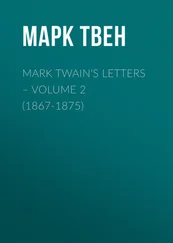I can quite believe that the Peacockean platitudes were a come down after grandfather’s production. 44 Yes: that is a very appropriate text.
During the course of my walks abroad while I was at the San., I met Mr. Taylor, the old Cherbourg drawing master whom you met. He was very distressed because he had heard that I had given up my drawing at the Coll., but was consoled by my assurance that it was only a temporary fixture so long as it clashed with English. We had a very pleasant little chat indeed.
Today was the Repton match, and I suppose Cherbourg was there, but I didn’t notice them. It ended in a draw of one all after a very exciting game.
Allow me to observe that your noisy salutations to this insolent physician are not at all apropos and also were in somewhat questionable taste. I cannot write any more now.
your loving
son Jack.
1The Rev. Canon Sydney Rhodes James (1855-1934) was the headmaster of Malvern College 1897-1914. His story is told in Seventy Years: Random Reminiscences and Reflections (1926).
2William Shakespeare, Julius Caesar (1623).
3Jack fell ill on about 1 June and had to retire to bed. He nevertheless managed to take the exams in the infirmary between 3 and 5 June.
4He was referring to Mr Allen who on 2 June wrote to Albert saying, ‘I believe you want him to go to the college here; if not, he might have a try for some other school which holds its Exams later’ (LP IV: 25).
5Warnie was very often referred to in correspondence with family and friends as ‘W.’
6Warnie had just begun thinking of entering the Army Service Corps, the one career he was always sure he wanted, while his father favoured a job with the London and North Western Railway
The Army Service Corps, which supplied food, weapons and other necessities to the troops, began in 1794 as the Corps of Waggoners. Over time it evolved until in 1888 it was recreated the Army Service Corps. In 1918, in recognition of its good work, it became the Royal Army Service Corps. It was renamed the Royal Corps of Transport in 1965. See John Fortescue, The Royal Army Service Corps: A History of Transport and Supplies in the British Army, vol. I (1930). Volume II by R. H. Beadon was published in 1931.
7Albert’s letter to Jack of 30 June 1913 (LP IV: 41). Warnie had been caught smoking.
8‘Leeborough’ was Jack’s and Warnie’s private name for Little Lea. It had the advantage of yielding the adjectives ‘Leeburian’ and ‘Leborough’, as in a volume of their Boxen drawings called ‘Leborough Studies Ranging from 1905-1916’.
9On 9 June Jack won a classical entrance scholarship to Malvern College.
10In a little piece called ‘My Life During the Exmas Holadys of 1907’, Jack paid tribute to the postman: ‘Our postman is called Gordon [Jordan] and is a very nice and sensible man, and often sets me an essay to wright, the subject of which he provides’ (LP III: 90). In his letter to Jack of 30 June 1913, Mr Lewis congratulated Jack on his scholarship, saying: ‘I met Jordan the postman the other night, and as he used to set you essays, I thought I would tell him. He was as pleased as Punch. He said “Sir, the next time you’re writing will you say–Jordan is delighted.”’ (LP IV: 41).
11See William Thompson Kirkpatrickin the Biographical Appendix. Mr Kirkpatrick had a number of nicknames, including ‘The Great Knock’, ‘Knock’ and ‘Kirk’.
12(Sir) Donald Innes Hardman (1899-1982) was Jack’s study-mate in School House. On leaving Malvern he went to Hertford College, Oxford. While serving in the First World War during 1916-19 he joined the Royal Air Force and became a professional serviceman. He was promoted to wing commander in 1939, air commander in 1941, air commander of South East Asia 1946-47, and was chief of air staff and organization 1954-57, retiring in 1958.
13Edward Anderson (1898-1928) was a member of School House 1913-17. After leaving Malvern he served in the war as a 2nd lieutenant. He later moved to Northern Rhodesia, dying there in November 1928.
14Kenneth Ernest Lodge (1899-?) was a member of School House 1913-17. During the war he served overseas as a 2nd lieutenant with the Duke of Lancaster’s Own Yeomanry. He was promoted to captain and remained in the army.
15Fitzgerald Charles Cecil Baron Hichens (1895-1977) was at Malvern 1909-14 and was the head of School House when Jack arrived in 1913. From Malvern he went to Exeter College, Oxford, but soon left there for Sandhurst from where he passed into the Duke of Cornwall’s Light Infantry in 1915, becoming a captain in 1918. Following the war he resigned from the army and obtained a regular commission in the Royal Air Force, in which he became a wing commander. He retired in 1943.
16‘Smugie’ or ‘Smewgy’ was Harry Wakelyn Smith (1861-1918) who taught Classics and English to the Upper Fifth and for whom Jack was to have great affection. He had been educated at St John’s College, Oxford, and he joined the staff of Malvern in 1885. In SB /VII, Lewis said: ‘Except at Oldie’s I had been fortunate in my teachers ever since I was born; but Smewgy was “beyond expectation, beyond hope”. He was a grey-head with large spectacles and a wide mouth which combined to give him a froglike expression, but nothing could be less froglike than his voice. He was honey-tongued. Every verse he read turned into music on his lips…He first taught me the right sensuality of poetry, how it should be savoured and mouthed in solitude…Had he taught us nothing else, to be in Smewgy’s form was to be in a measure ennobled. Amidst all the banal ambition and flashy splendours of school life he stood as a permanent reminder of things more gracious, more humane, larger and cooler. But his teaching, in the narrower sense, was equally good. He could enchant but he could also analyse. An idiom or a textual crux, once expounded by Smewgy, became clear as day.’ This deeply loved man died in his little house in the school grounds, where he lived alone, on 13 November 1918, a victim of the influenza sweeping Europe that year.
17Harry Richard Lucas Cooper (1899-1936), of Oxford, entered Malvern as a minor scholar in 1913. When he left in 1918 he ranked as the second boy in the school, head of School House, a cadet officer in the OTC and a football star. From Malvern he went to Christ Church, Oxford, where he took his BA in 1922. He worked for the Imperial Bank of India, and in 1924 was employed in the Calcutta office.
18Douglas Spencer Montague Tassell (1872-1956) took a BA in ‘Greats’ at Christ Church, Oxford, in 1894 and began teaching classics at Malvern in 1905. On the retirement of the geography master in 1928 he took over the teaching of geography. Perhaps his greatest work, and that which gave him most satisfaction, was with the Officers’ Training Corps. In 1909 he was put in charge of the Malvern contingent of the OTC, which he commanded until 1919 when he was awarded the Territorial Decoration. Warnie wrote of him: ‘In appearance he was a jaunty, dark haired, short mustached, dark eyed little man, very much the soldier with a permanent expression of busy irritation’ (LP IV: 73). It was he who first reported Warnie for smoking.
19For whatever reason his article did not appear in The Malvernian.
20Stanley Forrester Browning (1896-1917) became a member of School House in 1910 and by the time he left at the end of summer term of 1914, he had been a house prefect and in the second eleven at football. In 1914 he joined the Royal Flying Corps, and was a captain in that branch of the service when he was killed in action 3 May 1917.
21John Arthur Watson Bourne (1896-1943) was at School House 1910-14, during which time he was a house prefect. During World War I he was a captain in the RAF. He then worked as an engineer in the technical and research department of a petroleum company. During World War II he served as a captain in the Royal Signal Corps. He died in March 1943.
Читать дальше












